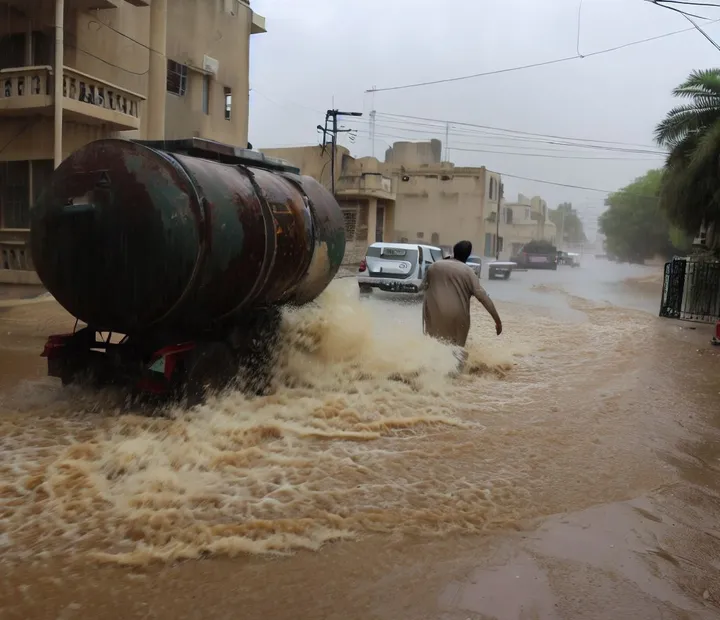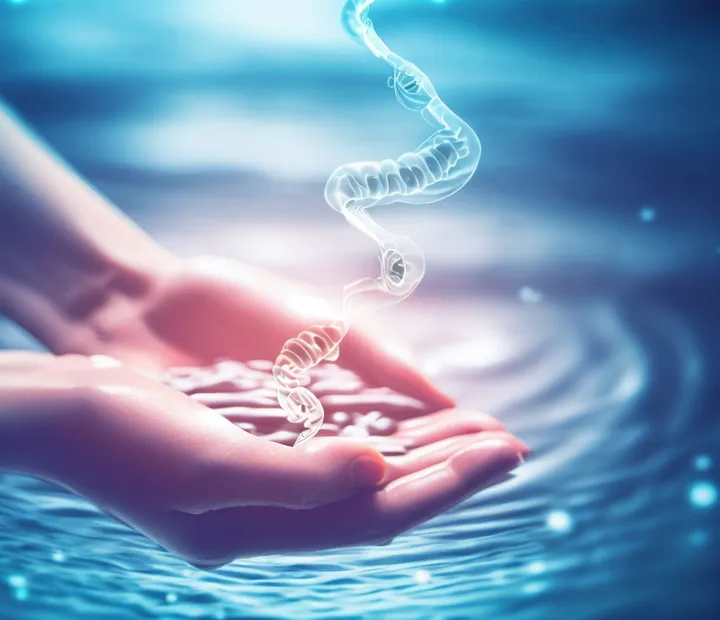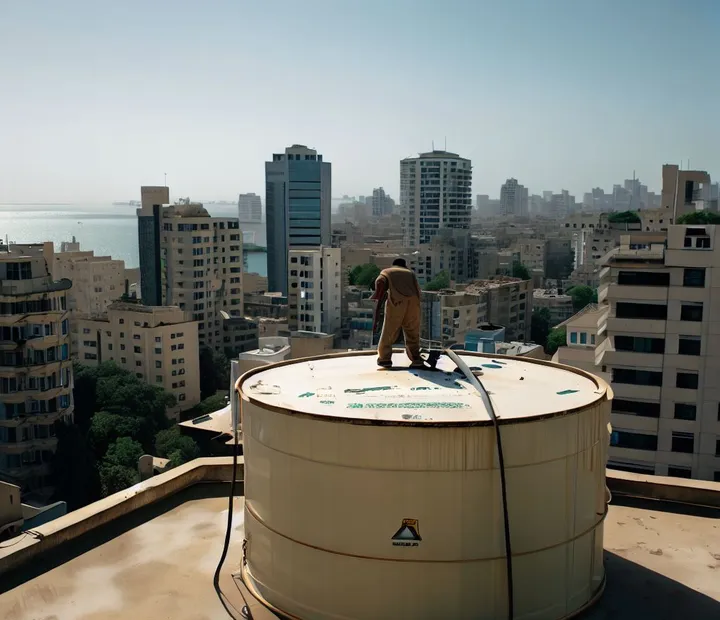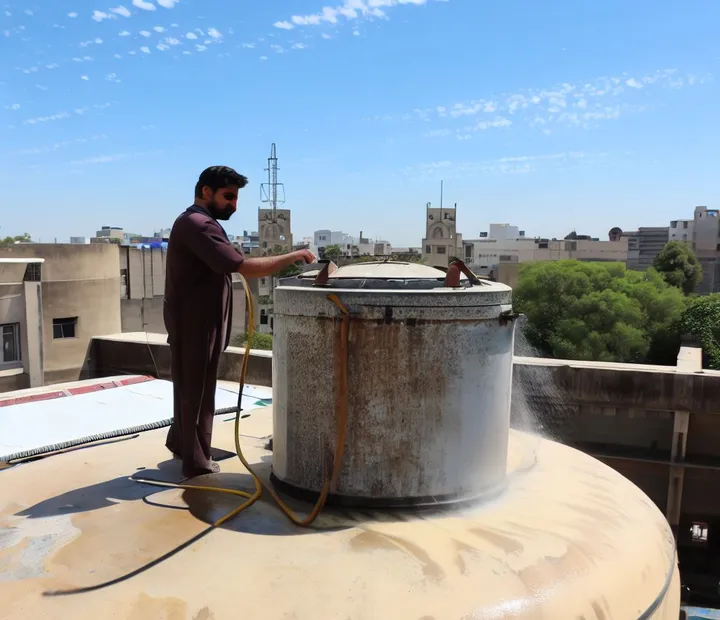Water is essential for life, but it can also be a source of disease and death if it is contaminated with harmful microorganisms, chemicals, or pollutants. In Karachi, a megacity of over 20 million people, many residents rely on private water sources, such as rainwater tanks, bores, and dams, for their drinking and domestic water needs. However, these water sources are often neglected and poorly maintained, exposing the population to various health risks.
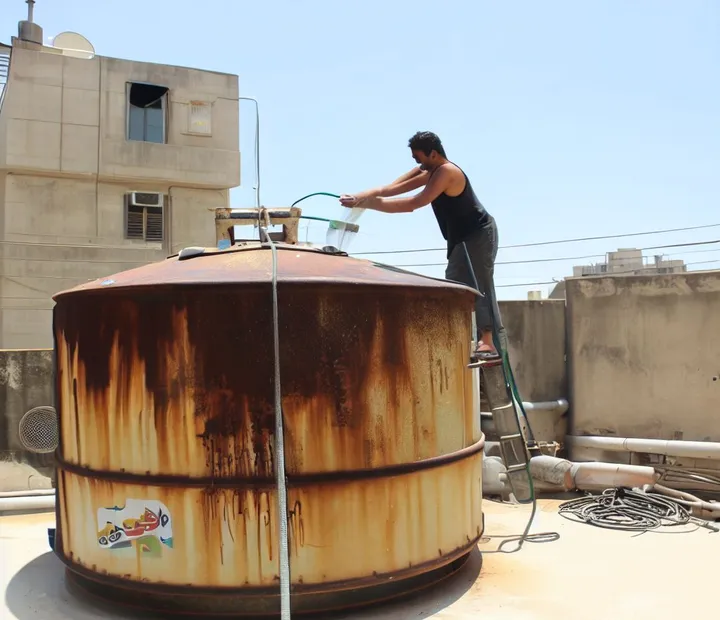
The Sources and Causes of Water Contamination in Karachi
Karachi faces multiple challenges in ensuring a safe and sufficient water supply for its growing population. The city suffers from chronic water shortages, inadequate infrastructure, poor governance, and environmental degradation. According to a report by the Pakistan Council of Research in Water Resources (PCRWR), Karachi needs about 1,100 million gallons per day (MGD) of water but only receives about 550 MGD from the Indus River and the Hub Dam. The rest of the demand is met by groundwater extraction, tanker mafia, and private water sources.
However, these alternative sources are often contaminated by various factors, such as:
- Animal faeces – such as bird or possum droppings on the roof or from farm run-off into rivers and creeks. Animal faeces can introduce bacteria, viruses, parasites, and worms into the water, causing diseases such as diarrhea, cholera, dysentery, typhoid, hepatitis A, and polio.
- Human faeces – leaking from septic systems or wastewater drainage. Human faeces can also transmit pathogens that cause gastrointestinal illnesses, as well as other infections such as skin diseases and eye infections.
- Pesticides – in run-off from farms or blown on to roofs. Pesticides can contaminate water with toxic chemicals that can affect the nervous system, the endocrine system, the reproductive system, and the immune system.
- Industrial or mining waste – in run-off or discharge from factories or mines. Industrial or mining waste can pollute water with heavy metals, such as arsenic, lead, mercury, cadmium, and chromium, which can cause cancer, kidney damage, neurological disorders, and birth defects.
- Urban pollution – such as stormwater, garbage, sewage, and chemicals. Urban pollution can introduce a variety of contaminants into the water, such as plastics, detergents, oils, solvents, and pharmaceuticals.
The Effects of Water Contamination on Human Health in Karachi
Water contamination can have serious and sometimes fatal consequences for human health in Karachi. According to a study by Aga Khan University Hospital (AKUH), about 40% of deaths in Karachi are due to waterborne diseases. Some of the common effects of water contamination on human health are:
- Gastrointestinal illnesses – such as diarrhea, cholera, dysentery, typhoid, hepatitis A, and polio. These diseases are caused by ingesting contaminated water that contains bacteria, viruses, parasites, or worms. They can cause symptoms such as abdominal pain, nausea, vomiting, fever, dehydration, and malnutrition. They can also lead to complications such as kidney failure, septic shock, and death.
- Skin diseases – such as scabies, impetigo, ringworm, and eczema. These diseases are caused by contact with contaminated water that contains bacteria, fungi, or parasites. They can cause symptoms such as itching, rash, blisters, and infection. They can also lead to complications such as secondary bacterial infections, cellulitis, and sepsis.
- Eye infections – such as conjunctivitis, trachoma, and river blindness. These infections are caused by contact with contaminated water that contains bacteria, viruses, or parasites. They can cause symptoms such as redness, swelling, discharge, and pain. They can also lead to complications such as corneal ulcers, blindness, and meningitis.
- Cancer – such as skin cancer, bladder cancer, lung cancer, and liver cancer. These cancers are caused by exposure to contaminated water that contains carcinogenic chemicals or metals. They can cause symptoms such as lumps, sores, bleeding, and weight loss. They can also lead to complications such as metastasis, organ failure, and death.
The Importance of Water Tank Cleaning in Karachi’s Hot and Humid Climate
Water tank cleaning is a vital preventive measure to ensure a safe and clean water supply in Karachi’s hot and humid climate. Water tanks can accumulate sediments, algae, biofilms, and contaminants over time, which can degrade the quality and safety of the water. Water tank cleaning can remove these impurities and disinfect the tank, preventing the growth and spread of harmful microorganisms, chemicals, and pollutants.
Water tank cleaning is especially important in Karachi’s hot and humid climate, because these conditions can accelerate the deterioration and contamination of the water. High temperatures can increase the evaporation and concentration of the water, making it more susceptible to chemical reactions and biological activity. High humidity can increase the condensation and moisture in the tank, creating a favorable environment for microbial growth and corrosion. Therefore, water tank cleaning is essential to maintain the freshness and purity of the water in Karachi’s hot and humid climate.
Water tank cleaning should be done regularly and professionally, following the best practices and standards. According to the World Health Organization (WHO), water tank cleaning should be done at least once a year, or more frequently if there are signs of contamination or deterioration. Water tank cleaning should be done by trained and qualified personnel, using appropriate equipment and methods. Water tank cleaning should also be done in conjunction with water testing and treatment, to ensure that the water meets the quality and safety criteria.
The Benefits of Water Tank Cleaning for Human Health in Karachi
Water tank cleaning can have significant benefits for human health in Karachi, by reducing the risk of waterborne diseases and infections, improving the quality and taste of the water, and enhancing the well-being and productivity of the population. Some of the benefits of water tank cleaning are:
- Reducing the risk of waterborne diseases and infections – Water tank cleaning can prevent or eliminate the contamination of water with harmful microorganisms, chemicals, or pollutants, which can cause various diseases and infections. By removing these contaminants, water tank cleaning can protect the health of consumers, especially children, the elderly, and immunocompromised people, who are more vulnerable to waterborne illnesses. Water tank cleaning can also reduce the burden on the health care system, by decreasing the incidence and severity of waterborne diseases and infections.
- Improving the quality and taste of the water – Water tank cleaning can improve the physical, chemical, and biological characteristics of the water, making it more clear, odorless, and palatable. By improving these attributes, water tank cleaning can enhance the satisfaction and enjoyment of consumers, who may otherwise avoid or dislike drinking or using contaminated or stale water. Water tank cleaning can also increase the efficiency and lifespan of water appliances, such as filters, purifiers, heaters, and coolers, by preventing clogging, scaling, and corrosion.
- Enhancing the well-being and productivity of the population – Water tank cleaning can improve the overall well-being and productivity of the population, by providing a safe and sufficient water supply for various purposes. By ensuring a safe water supply for drinking, cooking, and hygiene, water tank cleaning can prevent dehydration, malnutrition, and poor sanitation, which can affect the physical and mental health of the consumers. By ensuring a sufficient water supply for domestic use, food production, and recreational purposes, water tank cleaning can support the social and economic development of the consumers.
Conclusion
Water tank cleaning is a crucial preventive measure to ensure a safe and clean water supply in Karachi’s hot and humid climate. Water tank cleaning can prevent or eliminate the contamination of water with harmful microorganisms, chemicals, or pollutants, which can cause various health hazards for human health. Water tank cleaning can also improve the quality and taste of the water, enhancing the satisfaction and enjoyment of consumers. Furthermore, water tank cleaning can improve the overall well-being and productivity of the population, by providing a safe and sufficient water supply for various purposes. Therefore, water tank cleaning is a vital service that should be done regularly and professionally, to protect the health and welfare of the people of Karachi.

Dr. Ahmed is a renowned entomologist with over 20 years of experience in studying insects. He obtained her Bachelor’s degree in Biology from the University of Punjab, and then completed his Master’s and Ph.D. in Entomology from the University of the Punjab.
Dr. Ahmed has conducted extensive research on the behavior, ecology, and evolution of insects. His work has been published in numerous peer-reviewed scientific journals and has been presented at international conferences. He has also served as a consultant for various organizations, including government agencies and private companies.


